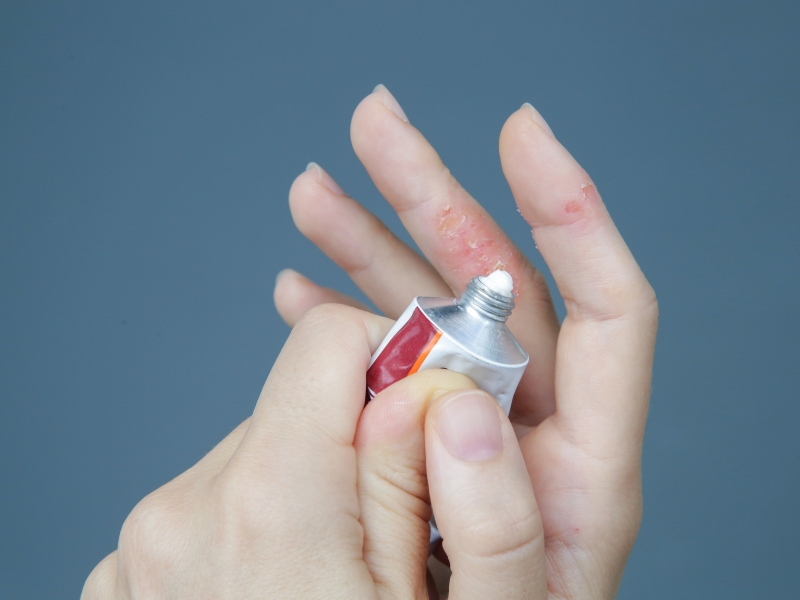Eczema, aka, atopic dermatitis, is one of the chronic skin disorders that affect a huge number of people worldwide. Quebec, Canada may be where people often get flare-ups during specific periods of the year which is the so-called seasonal eczema. This type of eczema dynamically produces more severe symptoms than before due to environmental changes. Investigating the underlying causes and discovering proper treatment methods can empower one to even out the symptoms and keep the skin in a good state throughout the year.
What Is Seasonal Eczema?
Eczema seasonal, or seasonal eczema, refers to eczema flare-ups that are affected by the weather changes specifically. Even though eczema is a chronic skin condition, some environmental conditions, for instance, humidity, pollen, or cold air can cause the symptoms to be more severe during the particular seasons. Weather fluctuations are mainly characteristic in some areas like Canada, for instance. Main Traits of Seasonal Eczema:
- Dry, scaly skin
- Intense itching, especially in winter season
- Red, inflamed and itchy spots
- Itchy or painful of any temperature sensitivity
- Increased uneasiness from seasonal allergies
Common Triggers for Seasonal Eczema
Seasonal eczema is conditioned by different factors that vary according to the season. Here is a list of some common triggers:
1. Winter Weather
Eczema usually gets worse in the winter as a result of the cold, dry air that takes the moisture out of the skin. Furthermore, the heating systems that preserve a comfortable indoor climate also cause a decrease in humidity, which can eventually cause the skin to lose moisture.
2. Spring and Summer
In spring pollen brings seasonal allergies and these can be the trigger for eczema, on the other hand, in summer heat and humidity cause all skin to sweat which in turn irritates sensitive skin increasing the chances of a flare-up.
3. Fall
During the fall season when the temperature drops, the skin naturally dries out faster, this could indeed cause a skin condition called eczema and also be a reason for the skin to become irritated.

Environmental triggers along with seasonal allergies make the situation more complicated while managing eczema. As an example, there is a huge portion of society that is wondering,”Can seasonal allergies cause eczema?” The response is yes, seasonal allergens can aggravate the situation by bringing inflammation which is the underlying cause of eczema.
How to Treat Seasonal Eczema
The treatment of seasonal eczema should be regulated as per the different seasonal conditions and the skin along with the climate changes. These are some self-care methods one can follow in order to deal with the problem:
- Moisturize Regularly
Keeping your skin moisturized is the main point of treatment for eczema. Ointments or Thick creams are more than lotions when it comes to retaining moisture. Applying the moisturizer while the skin is still damp after bathing helps to keep the water and prevents dryness.
- Adjust Your Skincare Routine for the Season
Each season requires a different approach to skin care. In winter, choose thicker, more hydrating products to deal with dry air.
- Avoid Common Irritants
Reducing the amount of irritants that you come into contact with can be a way to lessen the number of flares. Choose fragrance-free hypoallergenic soap and do not take long hot showers as this may strip your skin of moisture. Also, do not take long hot showers. Use only warm water for bathing.

- Use a Humidifier in Dry Seasons
Added Moisture to the air during dry seasons which can cut down the chances of your skin getting dried out. A humidifier is particularly effective in the winter months when indoor heating depletes humidity levels.
- Dermatologist Consultation
If such treatments are not giving the results, the online eczema dermatologist can be consulted. They can suggest more potent therapies that include topical steroids or immunomodulators which are customized to your problem.
Managing Seasonal Allergies and Eczema Together
Questions like “Can eczema be seasonal?” or “Can seasonal allergies cause eczema?” are common to ask as these two conditions usually come together. Treating both concurrently can result in better skin health.
Tips to Manage Both
Treating the seasonal allergies and eczema is a difficult task that can be tackled only with the proactive stance of minimizing triggers and regulating flare-ups.
- Take Allergy Medications: Antihistamines such as Allegra or Claritin can be taken to treat the allergies and thus the eczema breakouts will be less.
- Wear Protective Clothing: Wearing a long-sleeve shirt or face mask can help block some of the pollen coming in the spring.
- Keep Windows Closed: Make sure that during the allergy season the pollen count is low by keeping the windows shut.
How to Prevent Future Flare-ups
Using the seasonal eczema care techniques you can easily avoid the disease:
- Hydrate Your Skin: The barrier that is formed with the help of year-round moisturizing of your skin keeps away environmental triggers.
- Monitor Triggers: Write down the time of the flare-ups and the environmental factors that could have been basic reasons.
Final Thoughts
Seasonal eczema is a frustrating problem, but, with a proper treatment plan, you can control the symptoms and have no trouble all year round. Make sure to keep the skin moist at all times, change your skincare routines according to the season, and pay attention to environmental factors such as pollen and dry air. If you are not sure about something, get help from an online eczema dermatologist who will be able to assist you in the creation of a treatment plan that is tailored to your individual needs.
FAQs
Can stress trigger seasonal eczema flare-ups?
Surely, stress can be the reason for a decrease in the activity of your immune system that fourthly causes more inflammation and consequently eczema to flare up, especially during the seasonal shifts.
Does diet impact seasonal eczema?
Apart from no specific diet that was proven to cause eczema, some foods like dairy and gluten are known to worsen symptoms in some patients.
Can pets contribute to eczema flare-ups?
Indeed, organisms in pet dander can be added to the other common allergens to form a mélange that triggers eczema flare-up, especially at the time of year when pollen is in season.
Are there any natural treatments for seasonal eczema?
Some people mix in their bathwater coconut oil or oatmeal and say that the procedure gives them relief. Nevertheless, a first visit to a dermatologist before applying the aforementioned treatments is recommended.
